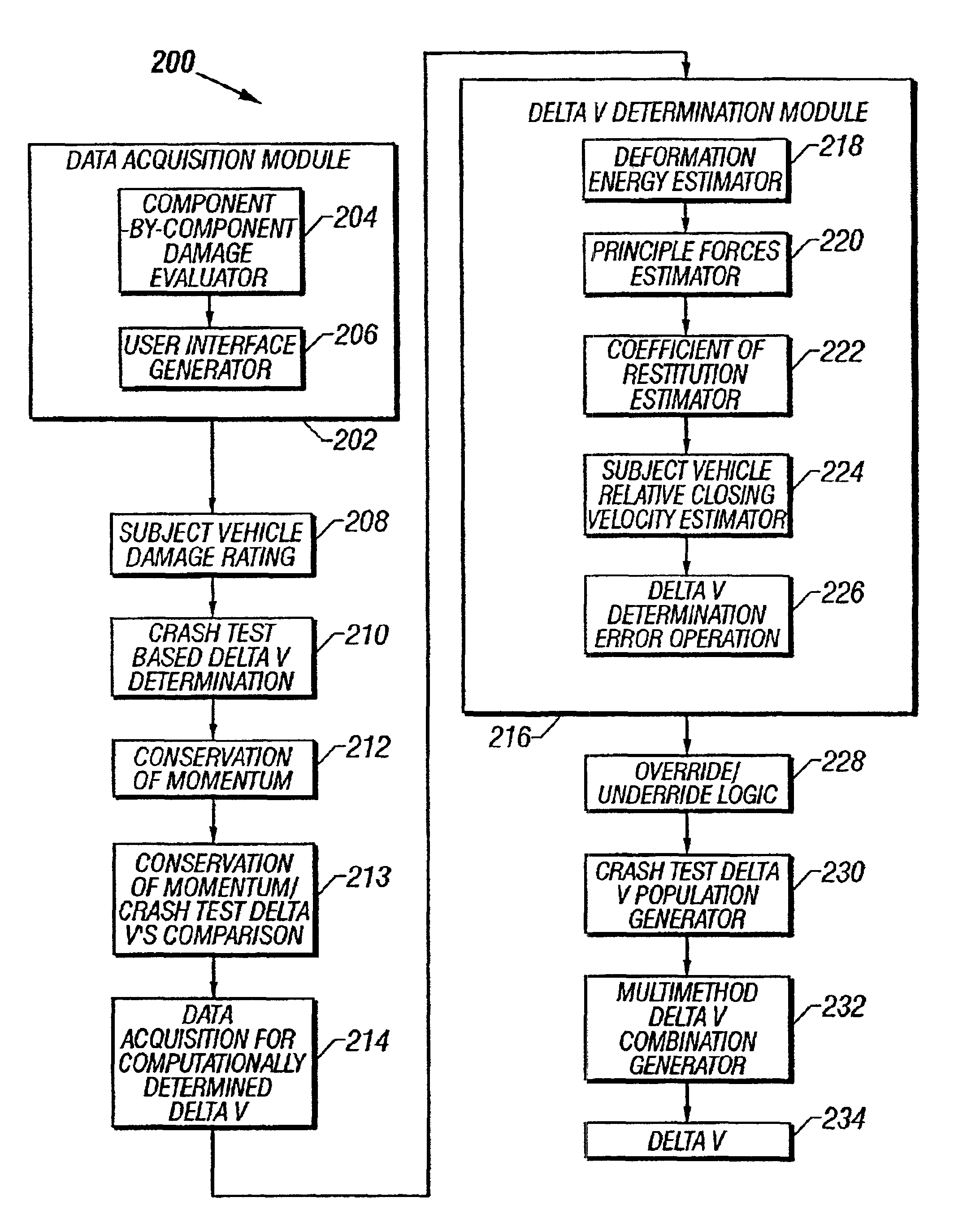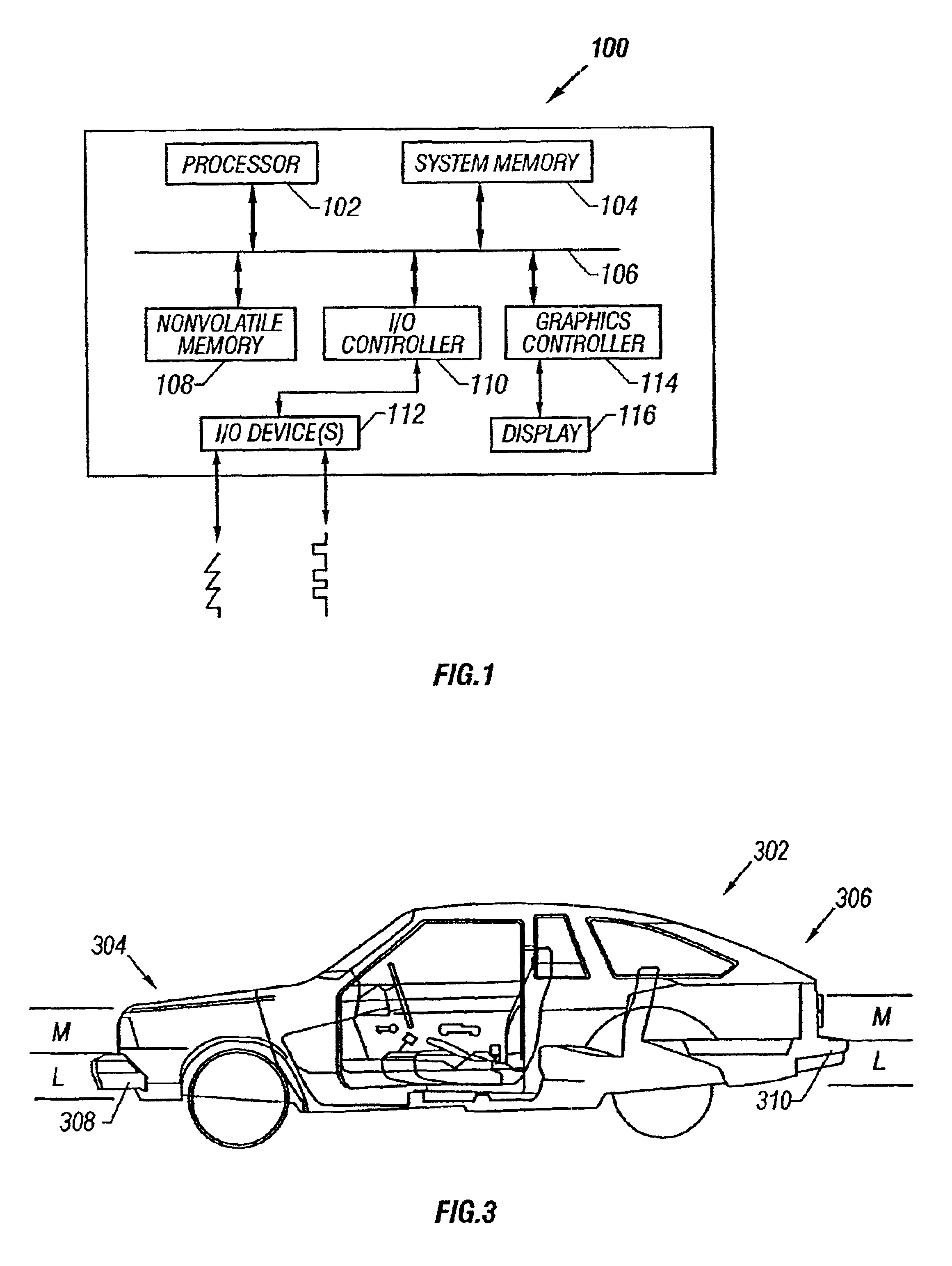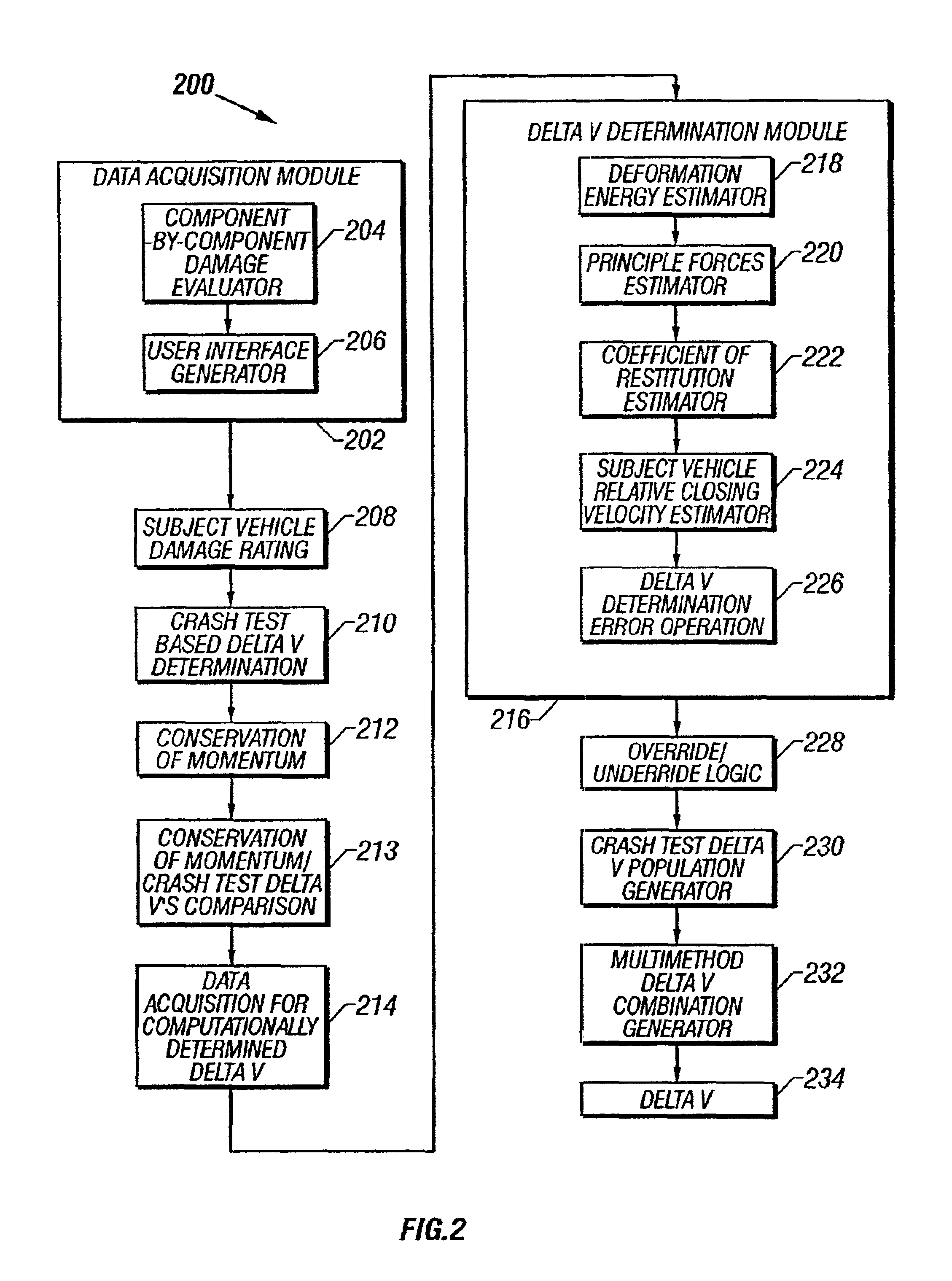System and method for estimating post-collision vehicular velocity changes
a technology of post-collision vehicular velocity and system method, applied in the field of electronic systems, can solve the problems of not cost effective, accompanied by injury to vehicle occupants, and involving trained engineers and accident reconstruction experts in all collisions
- Summary
- Abstract
- Description
- Claims
- Application Information
AI Technical Summary
Benefits of technology
Problems solved by technology
Method used
Image
Examples
Embodiment Construction
[0038]The following description of the invention is intended to be illustrative only and not limiting.
[0039]Determining vehicular velocity changes (“ΔV”) which occur during and after a collision is useful in evaluating the injury potential of occupants situated in the vehicle. Knowledge of the ΔV allows evaluators to, for example, reconcile vehicle occupant injury reports to injury potential and to detect potential reporting inaccuracies.
[0040]In most situations, the actual ΔV experienced by a vehicle in a collision (“subject vehicle”) is unknown. A ΔV determination module utilizes one or more methodologies to acquire relevant data and estimate the actual ΔV experienced by the subject, accident subject vehicle (“subject vehicle”). The methodologies include estimating a subject vehicle ΔV based upon available and relevant crash test information and subject vehicle damage and include a ΔV crush determination module 216 (FIG. 2) which allows estimation of ΔV from crush energy and compu...
PUM
| Property | Measurement | Unit |
|---|---|---|
| weights | aaaaa | aaaaa |
| crush depth | aaaaa | aaaaa |
| crush depth | aaaaa | aaaaa |
Abstract
Description
Claims
Application Information
 Login to View More
Login to View More - R&D
- Intellectual Property
- Life Sciences
- Materials
- Tech Scout
- Unparalleled Data Quality
- Higher Quality Content
- 60% Fewer Hallucinations
Browse by: Latest US Patents, China's latest patents, Technical Efficacy Thesaurus, Application Domain, Technology Topic, Popular Technical Reports.
© 2025 PatSnap. All rights reserved.Legal|Privacy policy|Modern Slavery Act Transparency Statement|Sitemap|About US| Contact US: help@patsnap.com



